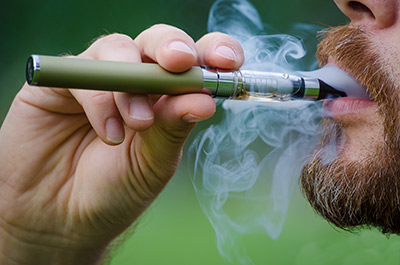FDA has not yet attempted to control the use and sale of electronic cigarettes, but many transit agencies around the US are getting ahead of the game. They are starting to adopt regulatory policies that treat e-cigarettes the same as regular tobacco products.
These agencies, including Virginia Railway Express (VRE), have concluded that where there is no smoking allowed, e-cigarettes also are not allowed.

Amtrak included e-cigs in its smoking policy six years ago. This was not long after the vapor-emitting, battery-powered cigarettes began to show up in the US. But sales are now taking off, with more than $2 billion sold in 2013. Product advertising is spreading across the US and more agencies are starting to issue regulations on the products.
In Virginia, VRE announced last month that e-cigarettes are restricted on all VRE property. Smoking is not allowed at all on trains, but it is ok on the 100 most northern feet of every train platform. VRE clarified this updated policy after a recent Train Talk event that VRE held between management and passengers.
The question was raised by several riders, according to VRE’s Bryan Jungwirth, so the agency decided to include e-cigs in the current smoking policy.
E-cigarettes work by heating a flavored liquid laced with nicotine that can be inhaled and exhaled. It produces a vapor cloud that looks like traditional smoke. People in favor of the devices say that the vapors do not have any chemicals that cause cancer, so the products are safe. Thus, they contend, e-cigs should not be regulated the way cigarettes are.
However, the American Cancer Society contends that the public health impact of the products still is unclear. The society states that studies indicate that e-cigs can cause lung changes in the short term that resemble those caused by traditional cigarettes. Long term health effects are not clear yet.



